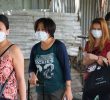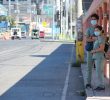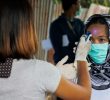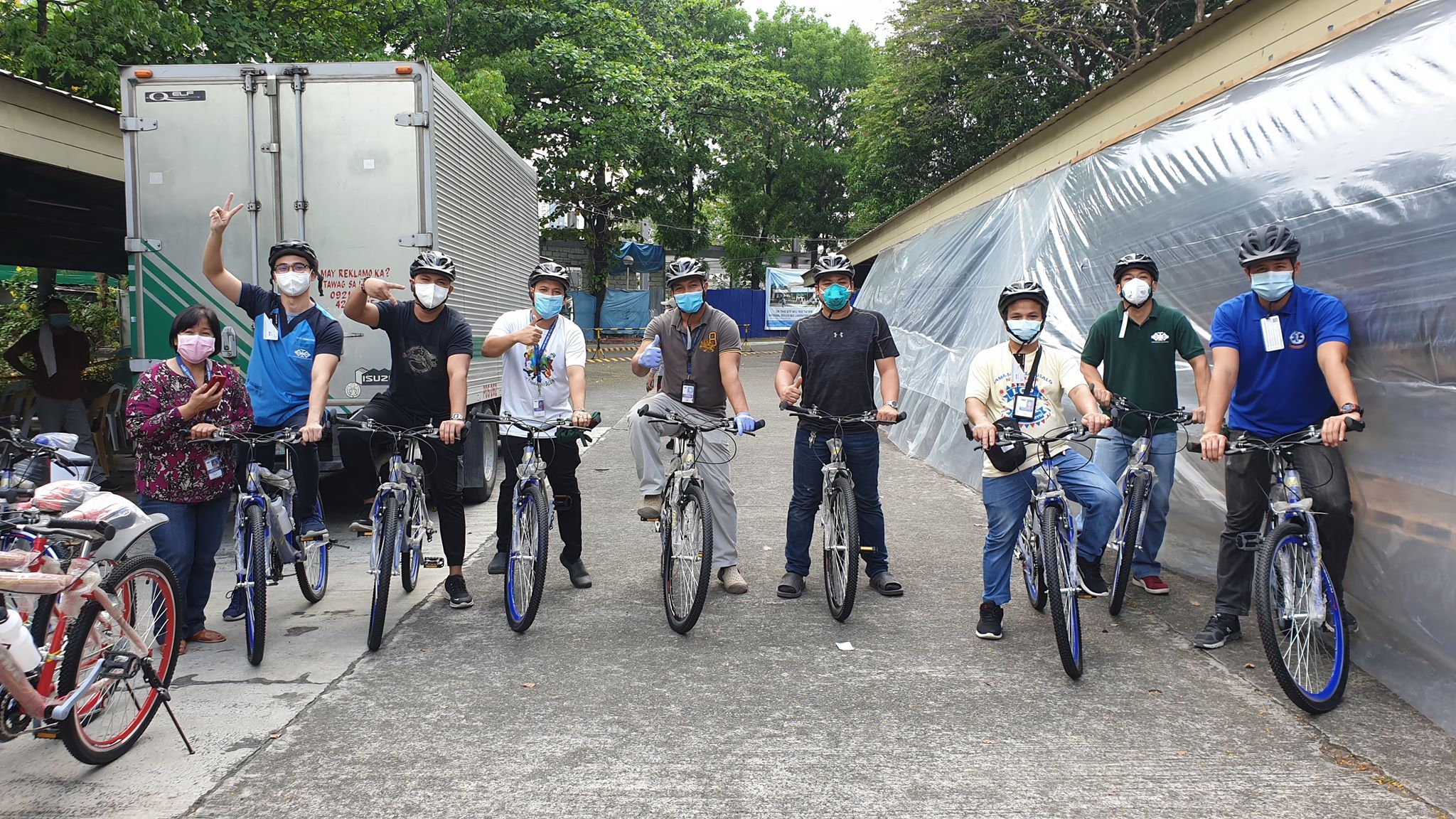
Photo courtesy of Life Cycles PH
MANILA, Philippines – Bike-sharing is a fairly new concept and has never been done on a large-scale in the Philippines. But this is what environmental planner Keisha Mayuga, 27, saw as an alternative method to move essential workers during the enhanced community quarantine (ECQ) in Luzon, where mass transportation has been suspended to curb the further spread of the Coronavirus Disease 2019 (COVID-19).
Mayuga, along with friends and other like-minded individuals, came up with Life Cycles PH, a “task force” that brings bikes to all essential workers, from those in healthcare to those in the food and retail industries.
The initiative is composed of two channels: a donation drive on the Life Cycles PH Facebook page, where interested individuals can donate any amount for the purchase of new bikes; and the Life Cycles PH community, a Facebook group where bike owners can lend out their bicycles to frontline personnel.
To date, Life Cycles has already delivered more than 500 bicycles and matched 360 lenders to borrowers. And with the lockdown still in effect, these numbers are expected to increase.
Meanwhile, the Inter-Agency Task Force for Infectious Emerging Diseases (IATF-EID) remained firm in its decision to suspend mass transportation, even as photos of stranded or walking employees and individuals with medical conditions continue to emerge on social media and in news reports.
In a press conference last March 17, former IATF Spokesperson and Cabinet Secretary Karlo Nograles advised the public that they can simply stay at home, “when in doubt”.
“We’re trying to limit the movements here. We cannot say that public transportation is open for certain people, because that’s very difficult to control anymore,” he said.
The IATF also floated the idea that local government units (LGUs) could provide transportation to its residents during the lockdown. However, only several LGUs were able to carry out this suggestion.
Mayuga said the citizens are therefore forced to step up, in order to supplement the delayed action of the government, not just in addressing the transport suspension, but also in handing out aid.
“Basing on the government’s history of bad implementations, we can’t necessarily depend on them to deploy right away. The initiatives that come from us, citizens, are more well-thought-out and carried out quicker,” she says.
Information hub
With the number of available initiatives during the ECQ, those who would like to help out may find it difficult to narrow down a choice. This is why a group of millennial professionals banded together to form Help From Home, a volunteer-led information hub that consolidates COVID-19 relief efforts in the country for the two most affected sectors, the frontliners and vulnerable families.
Kara Guioguio, a member of its Communications Team, stressed the need for the site to be user-friendly, to avoid user overload.
“There is a needs-based map which would easily show which area needs what. For example, this LGU needs more rice than masks. It would help channel donations their way, and avoid duplicity, so that we can allocate resources better. We also have a filter system, for quick searching,” she says.
Among the organizations in its portal is Save San Roque Alliance, an urban poor rights group focused on providing aid to the residents of Sitio San Roque, a community located along Agham Road in Quezon City. The alliance was initially created to help the locals create a community development plan, which, if implemented, will secure that the residents can live on the land they’ve cultivated, in homes of their own design.
Community kitchen
Upon the announcement of the lockdown, the alliance’s members immediately called for cash donations for the locals, which now totals to around 1.9 million pesos. Save San Roque decided to use the money to buy essential goods for the residents and turn it into capital for its Kusinang Bayan program, a community kitchen designed for 60 people a day.
Nanoy Rafael, Save San Roque’s Vice-Convenor for its Education Committee, says that the program began on April 4 with just five kitchens in operation.
“Those five kitchens represented the areas where Kadamay’s San Roque chapter was able to organize people. But that number grew, because the community called for it,” Rafael said.
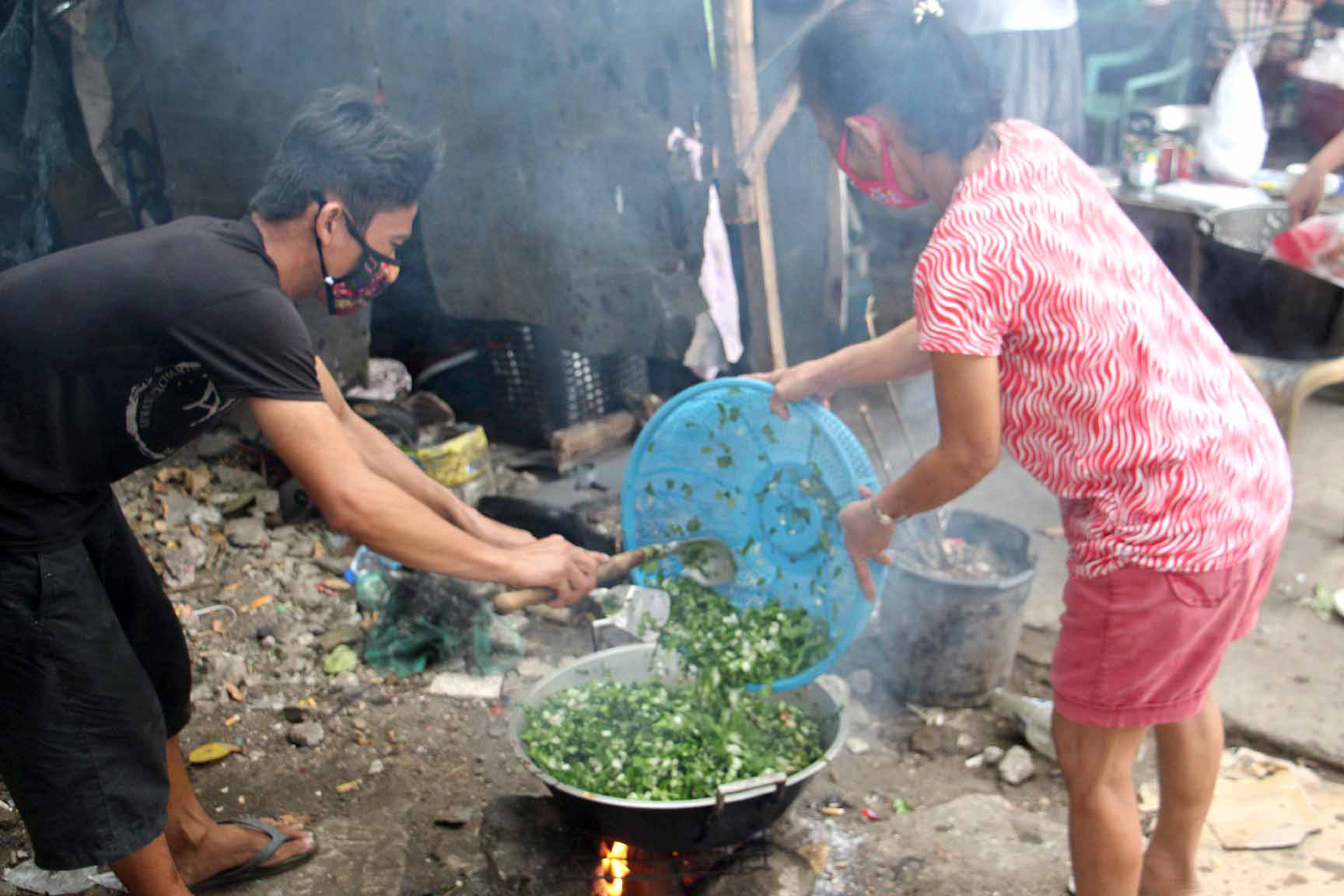
Photo courtesy of Save San Roque
Now they have more than 20 operating kitchens within the community. The feeding capacity also grew. Upon implementation, they saw they could feed up to 150 people a day per kitchen.
Rowena Nacubuan, a San Roque resident, is one of the people involved in making sure that the kitchens run smoothly.
“We (the volunteers) meet daily after each feeding. We prepare a meal plan for the kitchens, and we make sure that all stations have the right amount of ingredients,” she said, adding that the program is more effective in ensuring that the locals have food in their stomachs.
“The community kitchen has been a big help to us. Relief goods would only last for several days; but the Kusinang Bayan has been feeding us for around a month now. And we do not discriminate. We also feed residents who are not affiliated with Kadamay,” Nacubuan said.
Empower the grassroots
With the ECQ already extended twice, Luzon-wide until April 30 and the NCR and select provinces until May 15, fears over people’s livelihood and survival have surfaced. The viability of citizens’ initiatives has also been questioned. How would organizations cope if a third extension will be announced in the coming days?
Dr. Oscar Ferrer, the chairperson for the Department of Community Development at UP Diliman’s College of Social Work and Community Development, says that such movements, which are mostly led by middle-class Filipinos, are more suitable for addressing the needs of the affected during the ‘relief period.’
“Giving relief goods and donations can last from three to six months. But what will happen once the middle class’s resources have run out (due to a paralyzed economy brought about by the lockdown)? The middle class cannot sustain it.”
He emphasized the need in empowering the grassroots or communities.
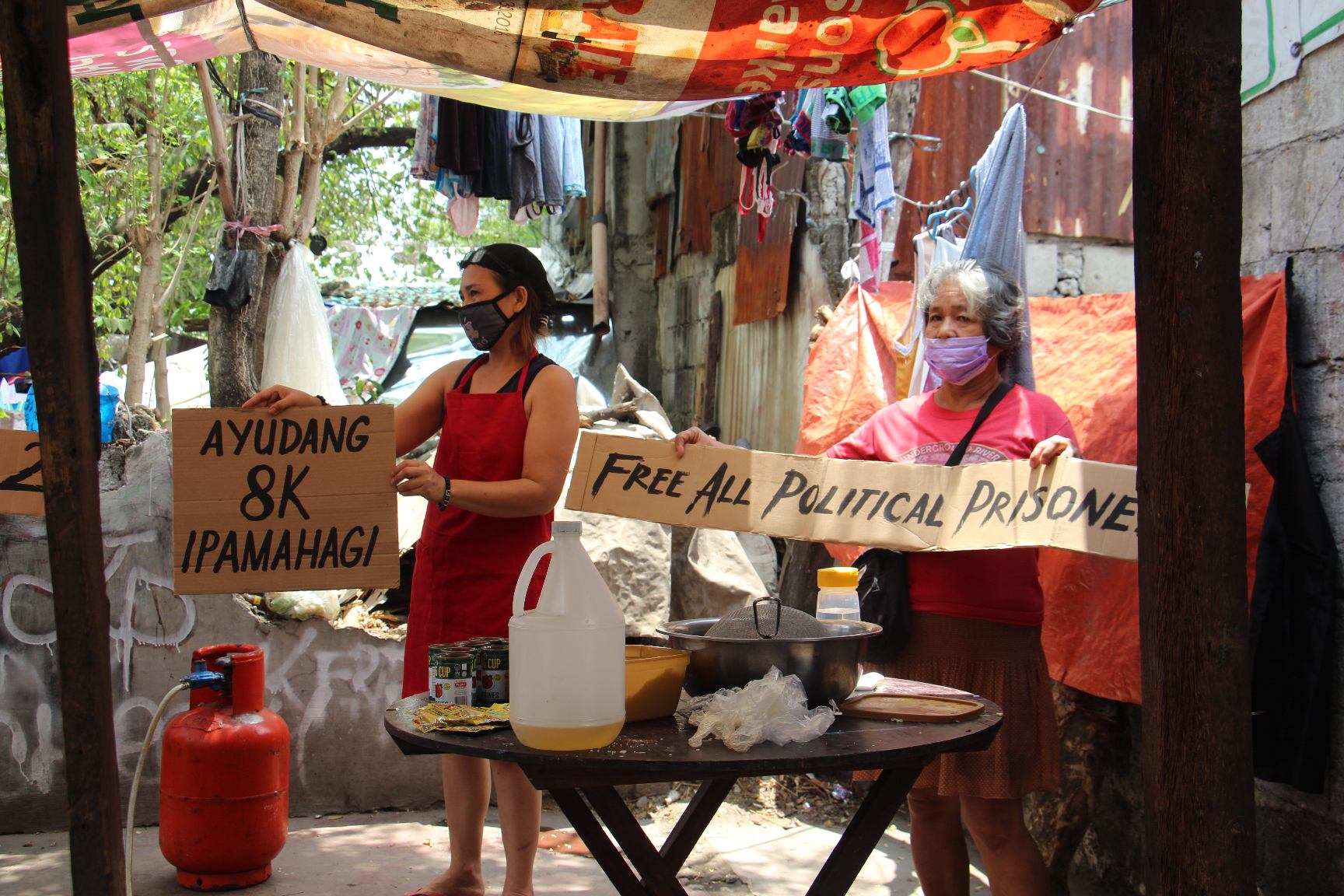
Photo courtesy of Save San Roque
“The first step to empowerment is letting the people own the initiative. All the credit should go to them. In a film, they are the leads, and we, the middle class, the organizations and institutions, are just the supporting actors. We strengthen them, so that when they are already capable, they can go to the duty-bearers, which are the government, and demand for their rights,” he said.
For Life Cycles, Mayuga said the group’s main focus is on addressing the transport issue during the quarantine.
“Since we were created out of a response to the quarantine, we don’t have concrete plans yet, because we also don’t know until when this is going to be. A lot of partner hospitals have asked us as well about the bikes we’ve delivered to them. We said that we can make recommendations post-ECQ, one of which is having these hospitals make their own local bike shares.”
Meanwhile, Save San Roque’s Rafael said that the alliance and the community are developing to have a bungkalan, or community plantation, within San Roque, which they hope will be able to sustain the residents even after the health crisis has been lifted.
“The people of San Roque know what is best for them, and I am sure that they will be able to make this thrive, once it’s been implemented,” Rafael said. (davaotoday.com)

